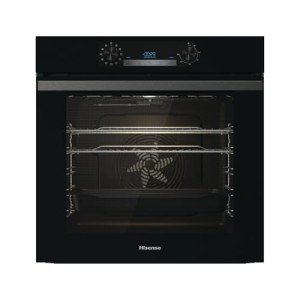The Comprehensive Guide to Built-in Ovens: Features, Benefits, and FAQs
Built-in ovens have actually become a staple in modern kitchens, providing convenience, style, and efficiency. Unlike basic freestanding ovens, built-in models are developed to incorporate effortlessly into cabinets, thereby elevating both the function and aesthetic appeals of kitchen areas. This post delves deep into the world of built-in ovens, discussing their functions, benefits, setup factors to consider, and responses to frequently asked questions.
What is a Built-in Oven?
A built-in oven is a device that is created to be set up directly into a wall or kitchen cabinetry. This installation option uses homeowners the ability to create a tailored cooking area, taking full advantage of available kitchen square video while providing a streamlined, professional look.
Secret Features of Built-in Ovens
Built-in ovens are packed with features that deal with a range of cooking styles and preferences. Secret functions include:
| Feature | Description |
|---|---|
| Range of Cooking Modes | Choices such as convection baking, broiling, and self-cleaning modes to boost cooking flexibility. |
| Size and Configuration | Offered in various sizes and heights to fit particular kitchen layouts, varying from compact to larger units. |
| Design Options | Visual options consisting of stainless-steel, black stainless, and custom-made panels to match any kitchen decor. |
| Smart Technology | Numerous built-in ovens come geared up with Wi-Fi abilities, making it possible for remote tracking and control by means of mobile phone apps. |
| Multi-Functionality | Some models combine oven and microwave or consist of steam functions to create varied cooking options. |
Benefits of Built-in Ovens
The advantages of including a built-in oven into a kitchen style extend beyond simple visual appeals. Here are some notable benefits:
1. Space Efficiency
Built-in ovens complimentary up counter top space by eliminating the requirement for a freestanding system. Their integration into cabinetry permits a cleaner kitchen layout.
2. Improved Visual Appeal
With streamlined styles and personalized surfaces, built-in ovens boost the overall look of the kitchen, contributing to a more cohesive style.
3. Improved Cooking Performance
Lots of built-in models provide sophisticated cooking technologies, such as convection cooking, which distributes hot air for even cooking, reducing cooking times and enhancing results.
4. Convenience and Accessibility
Built-in ovens are typically positioned at eye level, making it simpler to examine cooking progress, decreasing the need to flex down, and enhancing security.
5. Increased Home Value
A well-designed kitchen with built-in appliances can significantly increase a home's worth, making it more appealing to potential purchasers.
Installation Considerations
When selecting and setting up a built-in oven, there are numerous factors to consider:
- Kitchen Layout: It's necessary to prepare how the oven will suit the existing space, including cabinet heights and clearance requirements.
- Electrical and Ventilation Needs: Built-in ovens usually require specific electrical setups; make sure that the kitchen adheres to regional electrical policies.
- Professional Installation: Due to the intricacy of installation, employing a specialist can guarantee that the oven is installed securely and correctly.
Types of Built-in Ovens
Built-in ovens come in different types, each suited for numerous cooking styles. Below are a few of the most common:
- Single Oven: A traditional option for daily cooking requirements, supplying adaptability for baking, roasting, and broiling.
- Double Oven: Offers 2 separate cooking compartments, enabling for simultaneous preparation of multiple dishes-- a preferred for large households and those who amuse regularly.
- Wall Oven: These ovens are fully integrated into the wall and be available in various styles, including steam ovens and mix microwave ovens.
Popular Brands of Built-in Ovens
A number of reliable brand names use high-quality built-in ovens, understood for their dependability and series of functions:
- Bosch: Known for smooth design and advanced cooking innovation.
- KitchenAid: Offers creative functions and multi-functional styles.
- Samsung: Integrates smart technology with a contemporary visual.
- GE Appliances: Provides a range of alternatives for numerous budgets.
Often Asked Questions (FAQs)
1. How do I select the ideal built-in oven for my kitchen?
When selecting a built-in oven, consider the size of your kitchen, your cooking design and frequency, the offered budget plan, and any necessary electrical outlets or ventilation choices.
2. Are built-in ovens energy efficient?
Numerous built-in ovens feature energy-efficient innovations, such as much better insulation and accurate temperature controls, which can lead to less energy consumption compared to traditional ovens.
3. Can I set up a built-in oven myself?
While some house owners might attempt DIY installation, working with a professional is extremely suggested to ensure safe and proper setup, especially worrying electrical connections.
4. What upkeep do built-in ovens need?
Regular upkeep includes cleaning up the oven interior and exterior, examining the seals for integrity, and making sure that any smart functions or controls are upgraded as required.
5. Do built-in ovens come with warranties?
Yes, most trustworthy brand names provide guarantees on their built-in ovens, usually covering parts and labor for a specific duration. Make sure to check the information before acquiring.
Built-in ovens offer a mix of style, efficiency, and performance, making them a popular option for both contemporary and conventional cooking areas alike. With thoughtful consideration of features, setup, and upkeep, house owners can improve their cooking experience while adding substantial worth to their properties. Whether selecting simply click the up coming post or double oven, the investment in a built-in model promises to revolutionize the culinary landscape of any home.

